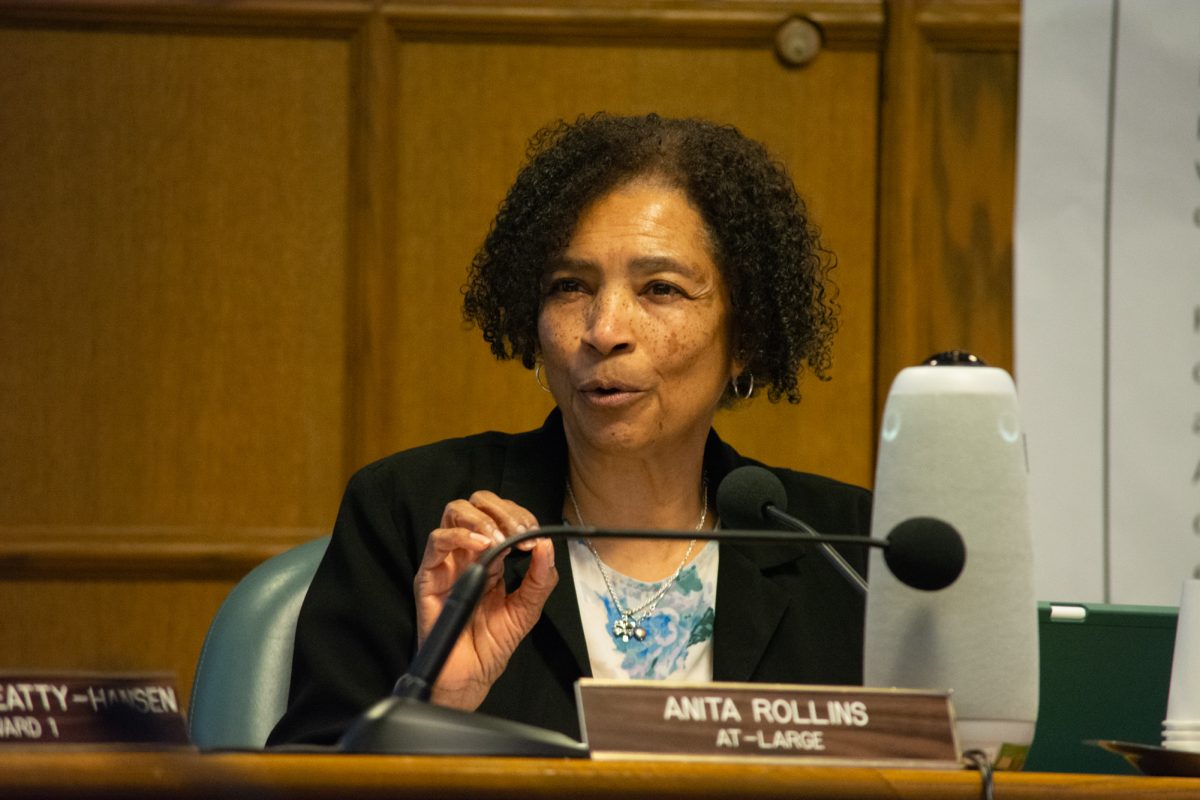Micro-credentials have been offered in different pockets at Iowa State for years, and now, an effort to centralize them is underway.
The effort will lead to a more coordinated display of student-earned competencies, according to Tanya Austin, professional learning and micro-credentials program specialist in the Center for Excellence in Learning and Teaching (CELT), as well as give a more direct route to talk about experiences while competing for jobs or to display on social media, such as LinkedIn.
Departments and units offer opportunities to earn micro-credentials, which after further integration and cohesion will appear as an emblem on a student’s transcript.
Specific criteria to determine micro-credentials have not been fully established, but the educational opportunity must be an in-demand skill.
“It has to be valued out in industry,” Austin said.
Micro-credentials also are required to be assessable. A verified person would assess a reflection or test for the micro-credential to prove learning.
“Micro-credentialing, by definition, is small, bite-sized pieces of learning that are competency-based,” Austin said.
Austin is facilitating the centralization of micro-credentialing in her newly created role in CELT.
A university task force dug deeper into micro-credentials and determined there are pockets across the university “that have been dabbling in micro-credentialing,” Austin said.
“So now it’s time to kind of centralize and/or provide consistency around what is being awarded outside of Iowa State,” Austin said, which includes the criteria of credentials and brand and cohesion of credentials.
Micro-credentials are a way that employers can verify that Iowa State recognizes additional leadership competencies. It can come in the form of a workshop, continuing education, a three-credit class and more.
“From the employer side, they can be assured that the competencies that students say they have, it’s from a trusted source at Iowa State University. There’s a consistent quality and rigor behind it,” Austin said.
Engineering, broad areas of business and writing and technical communication are primary areas with micro-credential opportunities, according to Ann Marie VanDerZanden, associate provost.
“It can be designed to meet the needs of a particular workforce sector, an individual company, but it is not something that is a long-term commitment that requires a lot of time and investment from a learner,” VanDerZanden said during the February Board of Regents meeting. “They’re short term; they can be on demand.”
Micro-credentials meet workforce needs through short-term commitment, according to VanDerZanden, and they can be offered on a timeline that is different from the academic timeline at the institution.
Austin said micro-credentials are a way to give some “momentum and trust and verification behind skills that you’re probably gaining outside of the classroom that are kind of hidden on a transcript.”
“This is not like faculty or departments or instructors have to recreate something new to make it a micro-credential. It’s just simply mapping out, what are we doing that students could demonstrate they have a specific competency that could be helpful in their employment?” Austin said.
There are three lanes CELT is approaching for micro-credentialing. One of the lanes is an industry-specific lane, where units or departments could partner with an outside entity to develop a micro-credential to deliver.
Another lane is transferable skills, co-curricular events or professional development courses with organizations such as Career Services.
The third is for non-degree-seeking students to do professional development and continuing education and is for outside community members looking to “upskill.”
A model program is being piloted with the lanes, and once they are proven effective, they will be scaled out to open up for people interested in pursuing credentialing. The centralization of the program is still at “ground zero,” Austin said.
The pilots are in action for this semester and the fall semester, though there is no timeline for launching the centralized programs as a whole. CELT will be researching technology for awarding badges in the summer.
The criteria is being developed by a workgroup with membership spanning across campus.
“When you ask six different people at six different institutions or even at the same institution, if somebody says ‘What’s a micro-credential?’ They’re going to all describe it differently,” Austin said. “So we all have to be on the same page for the type of language and the definition behind each of those that we’re using.”
Austin said the most exciting part of micro-credentialing is an opportunity to innovate and help students in a different way.
“You come in as an undergraduate student; it takes you four years to get that thing that says you did it,” Austin said. “Micro-credentialing allows you to experience those little wins around along the way that keep you engaged and excited.”
At the February Board of Regents meeting, Regent Sherry Bates referred to micro-credentials as “the best kept secret that I’ve ever heard,” while Regents JC Risewick, Abby Crow and Greta Rouse all spoke highly of the program offerings of micro-credentials at regent institutions.
CELT will host an idea-sharing event regarding micro-credentialing April 23.














